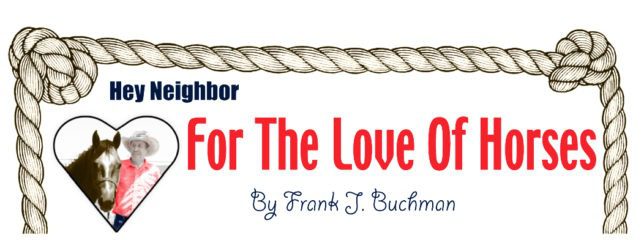Colic can be a lot more than an upset stomach in a horse.
Although most owners have had horses with colic, many don’t realize just how severe and complicated the situation can be.
“There are several causes of colic,” emphasized Dr. Elizabeth Davis, associate professor and head of equine medicine and surgery at Kansas State University.
“Some of these causes can be prevented,” she added. “Often, the problem can be treated, but there are situations which can not be cured.”
“All horses are susceptible to problems of colic, but Miniature Horses have a higher incidence,” she continued during her presentation at a Miniature Horse Fun Show and Clinic.
Sponsored by the Heartland Miniature Horse Club, the two-day educational and entertaining event was hosted by Larry and Sue Elniff at their Little Bit O Honey Miniature Horse Farm near Ozawkie.
Abdominal pain, a belly ache in cowboy’s terms, is the general description of colic. It can occur in the stomach, small and large intestines, liver, kidney and muscles, according to Davis.
Signs of colic include poor appetite, kicking at the belly, pawing, rolling, sweating and shaking, she explained.
Factors which can cause colic are stall confinement, highly concentrated diet, parasites and sucking air through cribbing. “Additional causes,” Davis continued, “include stress from long distance transportation, extreme weather conditions and water restriction for an extended period.”
Gastrointestinal problems might be ulcers, impaction or displacement in the large intestine or a twist in the small or large intestine.
“Most common cause of colic in Miniature Horses is fecalith, or feces in the colon, which cause an impaction,” Davis related. This typically occurs in young horses and during complications after surgery and may include diarrhea and poor appetite.
Enterolith is a mineral accumulation, like a stone or rock, in the colon. “This is most common in Miniature Horses and Arabians,” Davis declared. “Alfalfa hay and confinement increase the risk of development.”
The Elniffs had a horse with an enteroltith. “We performed surgery on the horse, and it recovered,” commented Davis as she showed the small-football shaped blockage removed from the Miniature Horse.
“Actually these are not an uncommon cause of colic and are obviously treatable if found in time,” she added.
Impaction in the small colon may be along the length of the intestine. “This can result in systemic illness and often requires surgery for correction,” Davis described. Foreign materials which can cause the problem include hay nets, toys and brush.
Five management tips to prevent colic included diet, dentition, parasite management, avoiding excessively sandy environment and ample water supply.
“Good quality roughage must be palatable and given in appropriate amounts,” Davis noted. “Deworming is essential and fecal egg counts are important to determine if the program is effective.
“Horses will often eat sand in their pens and develop colonic impaction,” Davis continued. “Lack of water in both the summer and winter can contribute to the risk of colonic impaction.”
Proper teeth flotation will smooth out the surface of the teeth to improve the grinding surface, thus increase digestion and absorption of nutrition.
“This will also avoid improper particle sizes of feed from entering the lower gastrointestinal tract,” Davis pointed out.
Correct diet will often prevent colic. “Horses should be maintained on an appropriate plane of nutrition, with roughage being about 1½ to 2 percent of body weight,” Davis recommended.
“It’s important to maintain a routine feeding time, and provide regular exercise,” she added.
Hyperlipemia is the presence of excessive amounts of fat and fatty substances in the blood, Davis defined.
“Reduced feed intake leads to mobilization of fat stores resulting in an increase of fatty acids and hyperlipemia,” she detailed. “Hyperlipemia can progress to a life threatening condition in the cells.”
Although miniatures horses and donkeys have many differences, both are similar in their susceptibility to developing hyperlipemia which can cause colic, pregnancy complications and trauma.
“Fasting for any reason puts them at risk,” Davis clarified. “Keep them eating when possible.”
“Deworming with appropriate products should still be followed by a decal egg count and another deworming,” Davis advised. “Another check in 14 days needs to show greater than a 90 percent reduction in count.”
In review, Davis urged horses to always have plenty of water and good quality feed for horses.
“Avoid sandy soil, be careful of foreign objects and monitor fecal output in order to use the proper vaccination and deworming programs.
“When horses develop colic, call your veterinarian sooner rather than later,” Davis concluded.
+++
